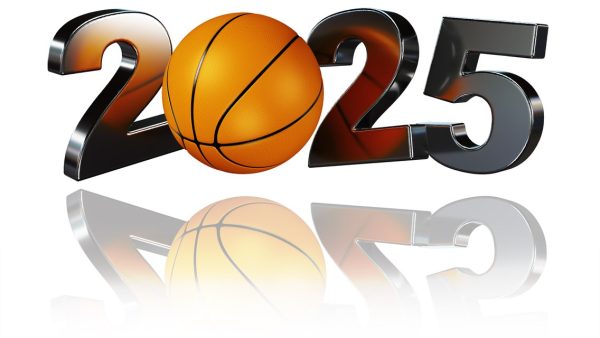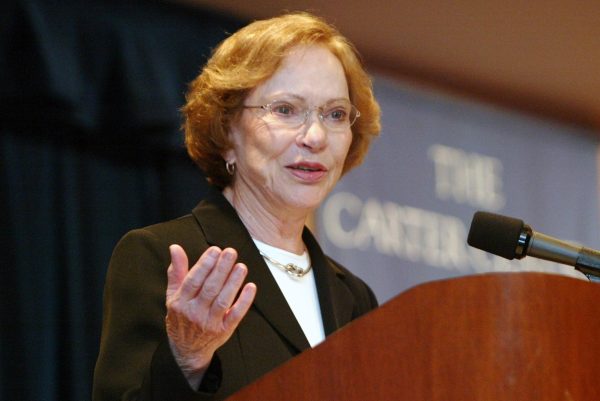The Founding Fathers Were Right: The State of Bi-Partisan Politics Today
“Vote now! Mail in your ballot or go to a local poll,” they say. “Your voice can make a difference; you can help decide who is in charge of this country.” We, the people, have the freedom to choose our leader and, by extension, decide what our government values and how our nation functions. The problem here is the inevitable rise of larger factions–people teaming up to usurp control and form an ultimate, unchecked party with nearly full control of the White House. The way we view electoral politics has been distorted beyond the point of recognition. The central problem I see with the current state of partisan division among the two parties and voters is with the checks and balances system written by the Framers.
Generally, the term bipartisan is used to describe the state of the government being split into two parties. These adversaries usually hold opposing ideas or policies, but the concept of a bipartisan government is not inherently bad. A hyper partisan government, on the other hand, is one that has two radically different parties. In severe cases, the government is in it of itself divided, with the factions not willing to cooperate to pass legislation. Partisanship does not value unity, but merely the sporadic back and forth of who is in charge. Hyper partisanship pits the two parties against each other to the point where political sabotage of one party’s platform by another results in policy stagnation, and in worst case scenarios, corruption. The Watergate Scandal, involving President Richard M. Nixon from the Republican Party, is a famous example of this.
Over two hundred years ago, the Framers of the Constitution gathered together in Philadelphia, amidst the post-war crisis and the birth of the new nation that they had fought so hard to create. They convened and debated, and at the end of it all, wove a seemingly (emphasis on “seemingly”) foolproof system of three government facets, each holding a power over another’s head, a tapestry of leadership and of freedom, of democracy and the very values that our nation built itself on. The authors of the constitution went further, fervently urging that political parties that gang up and look to supplant power would be the downfall of their system.
The consistent rivalry between factions in a government is a tale as old as time itself. It is not surprising that politics has become some sort of a rat race. Politicians are allowed to work together to achieve a common goal, and it is inevitable. However, the clash between Democrats and Republicans is so severe, it can be justifiably labelled as a hyper partisanship.
The specific conflict behind this developing hyper partisanship is something known as Congressional stonewalling and a Congressional gridlock. Hypothetically speaking, if the President and Congressional majority are held by different parties, they will constantly veto and trip each other up; this effectively ensures that nothing gets done. Congress has no incentive to work with the President; his or her success will be their failure, and vice versa. On the other side of the coin, if the President and Congressional majority are on the same team, there will effectively be unchecked power, rendering the interwoven system of keeping power in line obsolete. With unlimited power, the seat in the Oval Office, or even one in Capitol Building, for that matter, becomes all the more enticing. Tensions run high as the stakes rise, and the vicious cycle begins anew.
Generally, political parties also make politicians and voters alike highly susceptible to ad hominem attacks, the argument against a point, idea, or person because of an unrelated personal fault or the faults of things that are linked to them or it. An idea raised by Republicans can be shot down by Democrats easily and fairly convincingly, simply by bringing up an unrelated controversy surrounding the Republican party. Ideas are not the only thing linked to political parties; people, political figures, are also labelled and sorted into a party depending on their belief. In addition, attacks directed towards a politician that actually concerns their corresponding party can overshadow legitimate arguments.
This practice in which voters need to choose between Team Elephant and Team Donkey, is unorthodox, to say the least. The uncanny power of subconscious association can skew voting; people could be choosing based on parties, rather than on policies. It would also be careless and erroneous to flatten each politician’s beliefs to a flat and oversimplified summary: the introduction of two huge powers that have little to overlap in policies, with a smaller and easily forgettable grey area between, makes it easy for people to unknowingly label two vastly different people under a single title.
Unfortunately, this is not a conflict that we, the voters, the citizens of America alone can solve- at least, not now; not when the normalization of discreet war between opposing parties is still ubiquitous in America. However, I leave you with this message: Remember, you are the future generation. We can work together and at least change the way we view voting: not as the action of backing up your faction of choice, but as the action of making your voice and your values heard. We can slow down and even stop the development of hyper-partisan politics. In the end, it’s your choice. The Founding Fathers were right to fear political parties, and we, as a collective nation, didn’t listen.
Class of 2025: Vivian joined the newspaper staff this year. In the newsroom, she would like to pursue reporting, interviewing, and feature writing. She...




